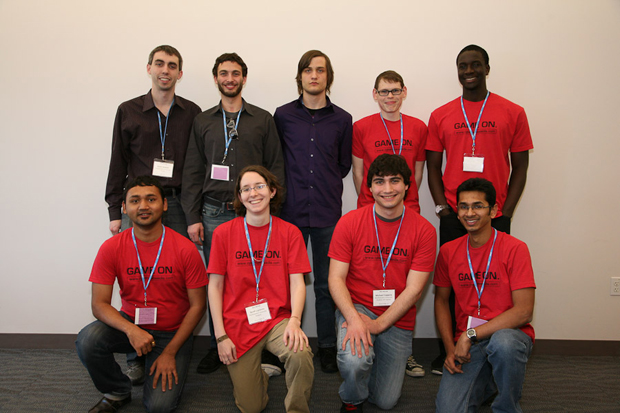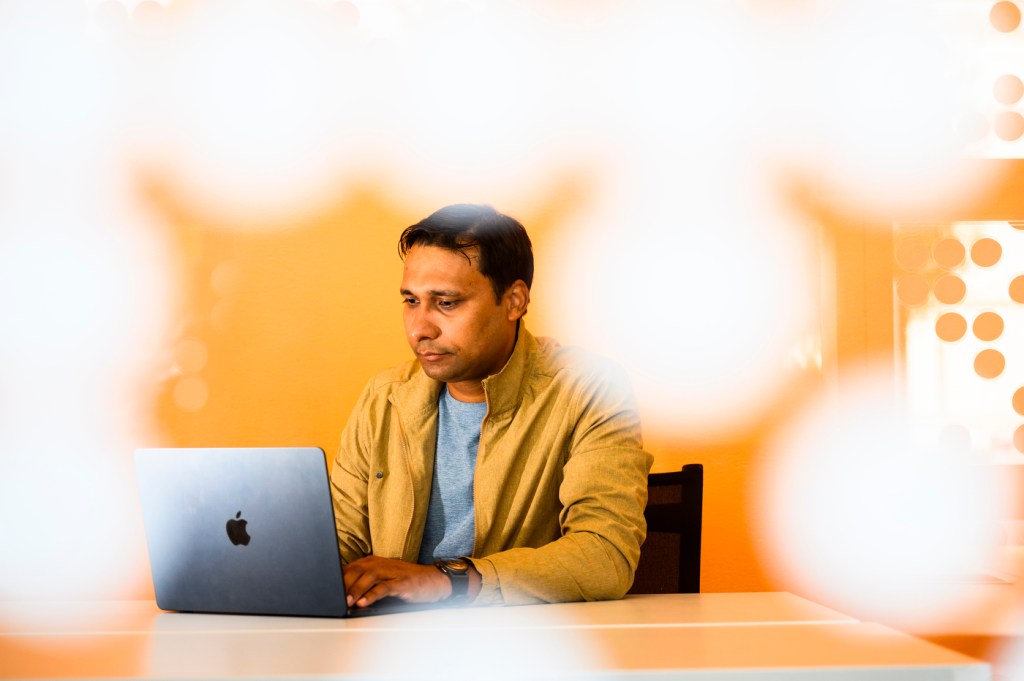Students compete in cyberdefense challenge

Last weekend, Northeastern students competed against industry professionals and peers from 11 other schools in the Northeast Regional Collegiate Cyber Defense Competition. Courtesy photo.
A new IT team takes over computing at an e-commerce firm and starts assessing the security of its shabby network. In one hour, the network will be breached by hackers looking for private data.
This realistic computing challenge was played out over the weekend at the ninth annual Northeast Regional Collegiate Cyber Defense Competition at the EMC Training Center in Franklin, Mass. Northeastern’s College of Computer and Information Science hosted the event, which was sponsored in part by Dell, Deloitte and Microsoft.
“Students were given an imperfect environment and they had to strengthen it and harden it, which is a major task,” said competition organizer Themis Papageorge, the director of Northeastern’s information assurance graduate program. “This is exactly the kind of challenge they will face in a real-world environment, so they had to take what they had learned in the classroom and apply it to the competition very quickly.”
More than 100 undergraduate and graduate students from a dozen schools — including Northeastern, Harvard University, Worcester Polytechnic Institute and Rochester Institute of Technology — attended the event, which Papageorge said was the largest national or regional cyberdefense competition ever held.
The most challenging of more than two dozen competition tasks required students to use their skills to thwart attacks from real-world cyberdefense experts.
“Suddenly you have a real penetration test, with experts from industry attacking your computers in a very aggressive way,” Papageorge explained. “You have to deal with being under attack as you fight off your assailants and continue to do your work and strengthen your network.”
The Northeastern squad did not end up with one of the top three scores at the end of the weekend, but Papageorge said the team learned a number of important lessons than could be applied in future competitions.
“That learning is invaluable,” he said. “You’re working with and talking to people who do this for a living. They’re competing with the best of the best here.”





